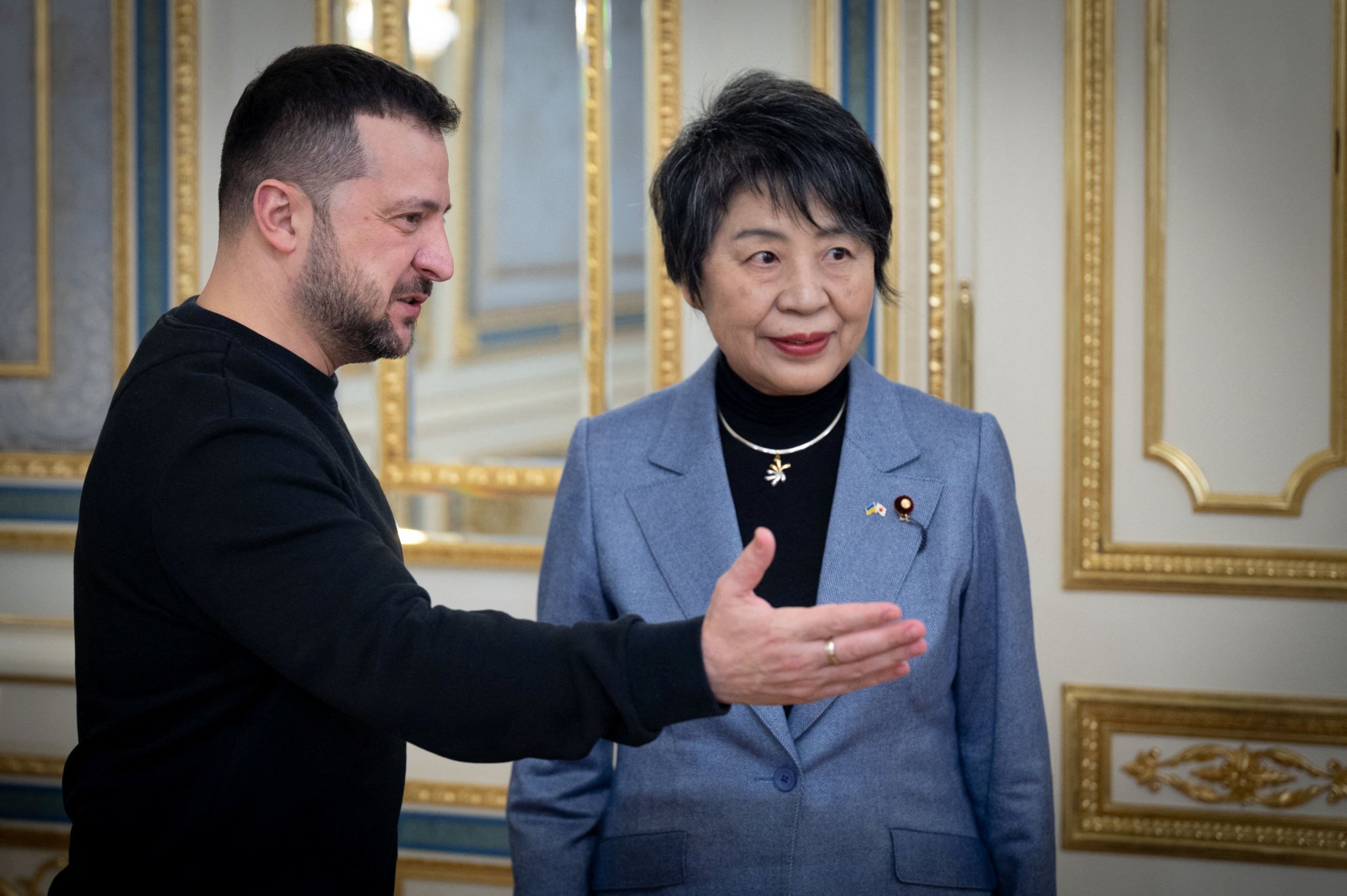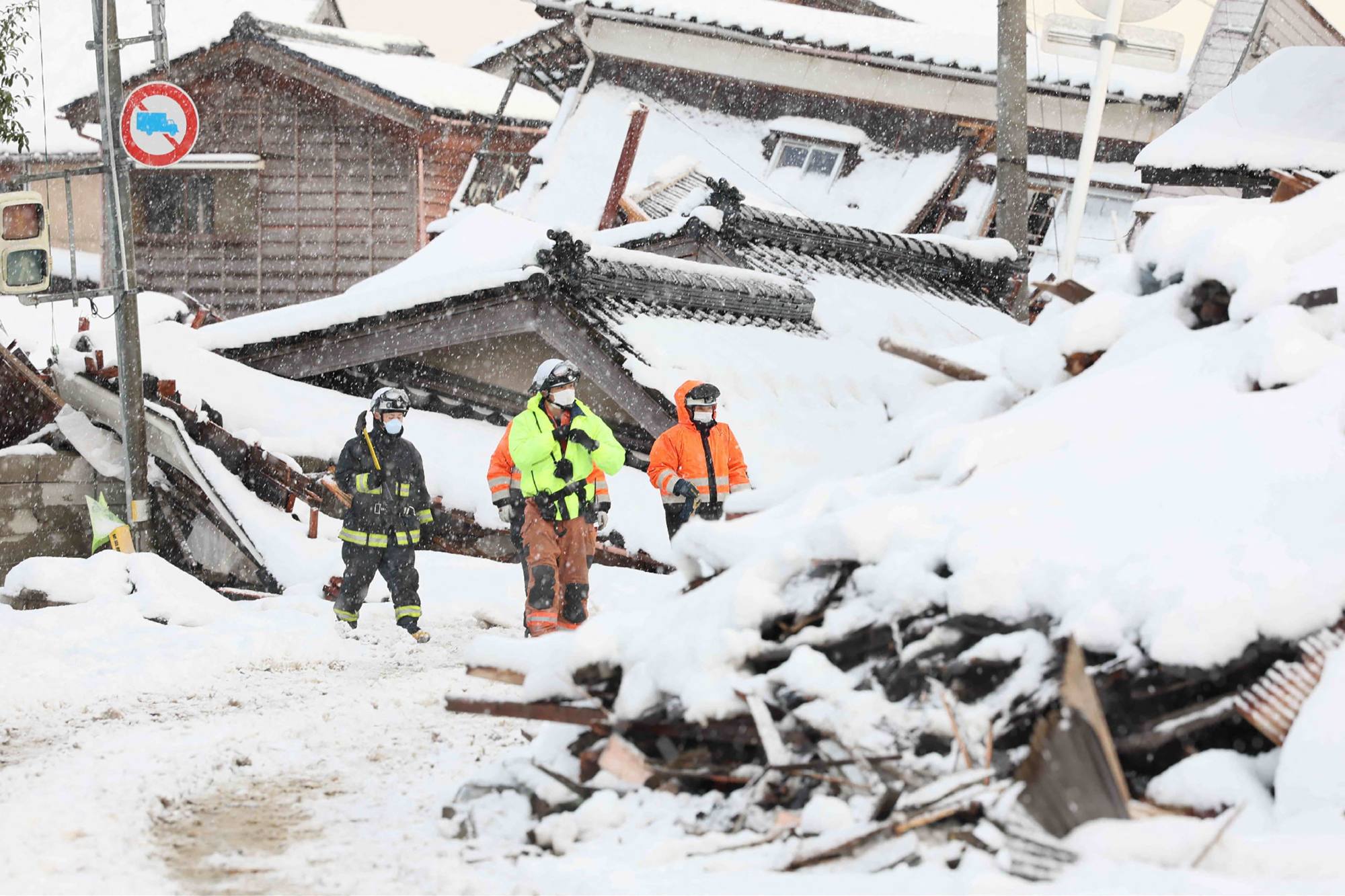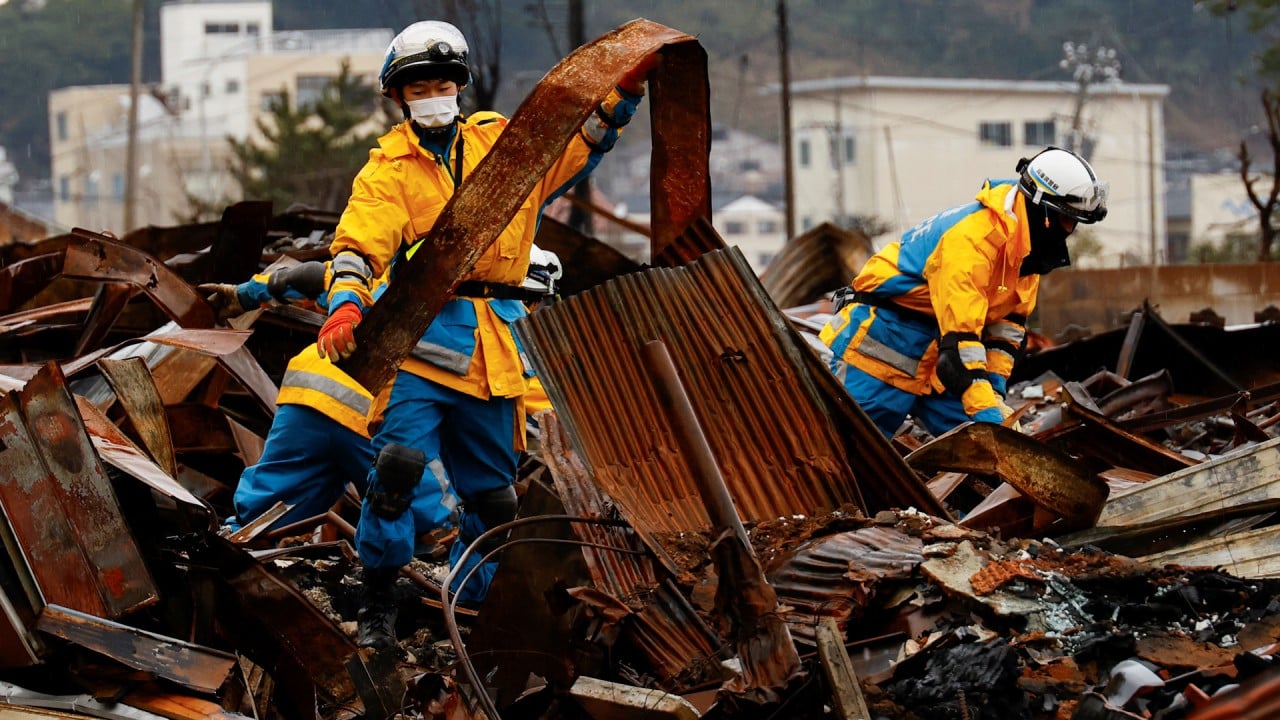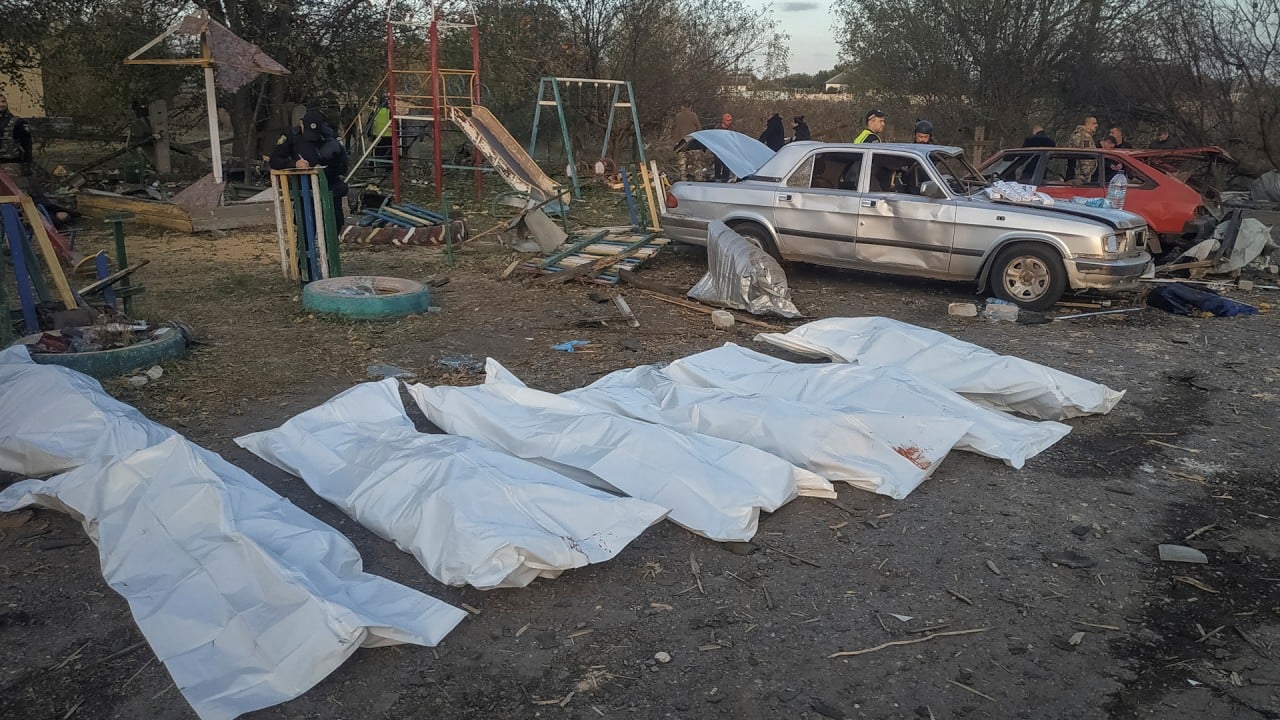
Japanese hit out at ‘completely crazy’ Ukraine aid in deadly Japan earthquake’s aftermath
- Criticism of Japan’s aid to Ukraine has intensified after the quake, reflecting a shift away from unconditional support for the besieged nation
- But others remain adamant that Japan must remain a reliable international partner – in case it too needs help in the event of a military attack
As recently as October, a survey released by international consultancy GlobeScan showed that 77 per cent of Japanese people agreed with their government supporting Ukraine. But dissent appears to be growing after the latest pledges.

An online article by Jiji Press on Tuesday attracted a number of negative comments, with one asking: “What is the Japanese government doing in a place like this when so many people on the Noto peninsula are fighting cold and hunger? The US has begun withdrawing from Ukraine. Japan has been left behind and forced to look after Ukraine instead of the Noto peninsula.”
Another wrote: “Delivering aid money to Ukraine, which is refusing to stop a war that kills people while ignoring the helpless people of Noto, who are trapped in the rubble! It is clearly harmful to the national interest.”
“Look at the disaster of the earthquake, the elderly, the children. Japanese people need ASAP those US$37 million in government help instead [of the] Kyiv regime.”
Other messages have theorised that much of the aid funds are being siphoned off by corrupt government officials in Ukraine, with one poster claiming to have proof that a senior member of Zelensky’s administration spent millions of dollars on a house in Germany.
A Ukrainian national living in Japan, who asked not to be named, told This Week in Asia he had noticed waning interest in the conflict among his Japanese friends and colleagues.
“My sense is that they are getting tired of being involved in something that could go on and on for a long time,” he said. “There was enthusiasm for the resistance at the beginning, but when it becomes a long and hard struggle, then people tend to think of their own problems first.
“I do understand, but it would be nice if people would be a little more supportive,” he said. “I think it is possible that if something really bad happened again, then some support would come back, but if the war just continues as it is now, then I think it will be hard to generate any new support.”
For me, we have to continue to support Kyiv because … it’s our war as well, they are just the ones fighting it
Yakov Zinberg, a Russia-born professor of international relations at Tokyo’s Kokushikan University, said he had also sensed a change in attitudes among Japanese people.
“When I speak to my friends and students, there has been a clear change,” he said. “Many believe that Ukraine will not be successful, and they ask why we should send money to Kyiv when we have problems here in Japan.
“That has become far more common since the earthquake and many people are saying that Tokyo has sent far too little to the disaster zone,” he added.
Zinberg said the attitudes of many Japanese were comparable to conservatives in the US, where the debate has focused on preventing migrants from crossing the southern border illegally rather than spending money on weapons for Ukraine.
“I can see Russia’s hand behind all this debate,” Zinberg said. “The right-wing has been convinced to oppose efforts to support Ukraine and now those on the far left are saying the same things, even if it is for very different reasons.”
Others, however, are adamant that Japan needs to stand by Ukraine if it wants to be seen as a reliable partner, and because there may come a time when the Japanese people need similar assistance to fend off a military challenge.
“I am surprised to hear Japanese people saying we should abandon Ukraine because that is not what I am hearing from my friends and business contacts,” said Ken Kato, a politically conservative businessman from Tokyo and member of the ruling Liberal Democratic Party.

“For me, we have to continue to support Kyiv because … it’s our war as well, they are just the ones fighting it,” he said.
“I have not seen any public opinion polls on the issue, but we have to remember that Russia broke its treaty with Japan in 1945 and invaded Japanese islands in the far north before the surrender.”
If Russia were not defeated, Putin would be able to claim a victory that humiliated the West, Kato said, adding that such an outcome “would be very dangerous because it would show others that they can ignore international law and do as they wish”.
“An invasion [of Taiwan] would inevitably affect Japan and I would hope that the global community would stand by us,” Kato said.
“I find it hard to believe that some Japanese are so short-sighted they cannot see this, especially when Japan is sufficiently wealthy and resilient to both support Ukraine and help the people of the Noto peninsula.”



